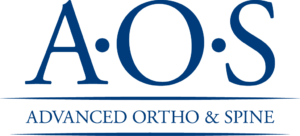
Our modern world revolves around technology. From work emails to social media scrolling, we spend countless hours hunched over phones, laptops, and tablets. While these devices connect us and keep us informed, their constant presence can come at a cost – pain in the neck and shoulders, a condition commonly referred to as “tech neck”.
In this post, we explore the causes and consequences of tech neck, offering solutions to alleviate and prevent this increasingly common discomfort. We’ll explore practical tips, stretches, and lifestyle adjustments to help you reclaim a pain-free digital life.
What is tech neck?

Tech neck (also known as ‘text neck’) is a term used to describe neck and shoulder pain caused by prolonged poor posture while using digital devices. The constant downward tilt of the head to view screens puts a significant strain on the muscles and ligaments that support the neck and upper back.
Causes of Tech-Related Neck, Shoulder, and Back Pain

Several factors can contribute to tech-associated neck, back, and shoulder pain, including:
- Postural Strain: Looking down at your phone or computer for extended periods forces the head forward, placing excessive weight on the cervical spine (neck) and upper back muscles. This prolonged strain leads to tightness, fatigue, and ultimately, pain.
- Disc Degeneration: The intervertebral discs, located between the vertebrae in your spine, act as cushions. Poor posture can accelerate disc degeneration, leading to pain and reduced flexibility.
- Muscle Imbalance: Overuse of certain muscles while neglecting others can create imbalances. The constant use of neck flexor muscles (front of the neck) to hold the head forward can lead to tightness, while the extensor muscles (back of the neck) become weak and underused.
- Pinched Nerves: In severe cases, prolonged poor posture can compress the nerves in the cervical spine, causing pain, numbness, and tingling in the neck and shoulders.
The Toll of Tech on the Body

While tech neck may initially manifest as neck and shoulder discomfort, it can lead to a cascading effect of problems, including:
- Headaches: The tension and strain in the neck muscles can trigger headaches, ranging from dull aches to sharp pains.
- Upper Back Pain: The strain on the upper back muscles can radiate pain throughout the back, impacting posture and mobility.
- Reduced Range of Motion: Chronic tightness in the neck and shoulders can limit your ability to move your head and arms freely.
- Arthritis: Over time, repetitive strain can accelerate the development of arthritis in the cervical spine.
Combating Tech Neck: Strategies for Relief
The good news is that tech neck is largely preventable and manageable. Here are some strategies to combat the discomfort and reclaim a pain-free digital experience:
1. Posture is Key

- Mind Your Position: Be mindful of your posture while using digital devices. Sit tall with your shoulders back and relaxed, keeping your ears directly above your shoulders. Invest in an ergonomic chair with proper lumbar support to maintain good spinal alignment.
- Raise Your Gaze: Elevate your laptop or tablet screen to eye level. This reduces the need to tilt your head forward and minimizes strain on your neck muscles. Consider laptop stands or monitor risers to achieve the ideal screen height.
2. Take Movement Breaks

- Break the Cycle: The key to preventing tech neck is to avoid prolonged static postures. Set a timer to remind yourself to take breaks every 20-30 minutes. During these breaks, stand up, stretch your arms and legs, and walk around to get your blood flowing.
- Micro-Movements: Even small movements can help. While seated, gently roll your head in a circular motion, tilt your head from side to side, and perform shoulder rolls. These micro-movements can help loosen tight muscles and improve circulation.
3. Stretch and Strengthen

- Strengthen Your Core: A strong core provides stability throughout your body, including your spine. Exercises like planks, bird-dogs, and bridges can strengthen your core muscles, improving posture and reducing strain on your neck and shoulders.
- Neck and Shoulder Stretches: Regularly incorporate targeted stretches into your routine to maintain flexibility and range of motion in your neck and shoulders. Simple stretches like neck rolls, chin tucks, and doorway chest openers can help alleviate tightness and prevent pain.
4. Make Lifestyle Modifications

- Mind Your Phone Habits: Avoid hunching over your phone when texting or browsing. Hold your phone at eye level to minimize strain on your neck.
- Lighten the Load: If you carry a heavy backpack or purse, consider switching to a lighter option or using both straps evenly to distribute the weight.
- Hydration is Important: Interestingly, staying hydrated can help. Proper hydration helps maintain the health of your discs and muscles. Aim to drink plenty of water throughout
When should I seek professional help?

While most cases of tech neck respond well to self-care strategies like stretching, strengthening, and posture correction, there are situations where seeking professional help from an orthopaedic specialist like those at Advanced Ortho & Spine (AOS) is recommended. Here are some red flags that warrant a visit to the doctor:
- Severe Pain: If the pain in your neck and shoulders is severe and doesn’t improve with self-care measures after a few weeks, it’s important to see a doctor to rule out any underlying conditions.
- Radiating Pain: If the pain radiates down your arm or hand, accompanied by numbness, weakness, or tingling, it could indicate a pinched nerve or other complications requiring professional evaluation.
- Headaches: Persistent headaches that worsen with device use and don’t respond to over-the-counter pain medication warrant a doctor’s visit.
- Loss of Mobility: If you experience a significant decrease in your neck’s range of motion or difficulty turning your head, seeking professional help is crucial.
- Balance Issues: In rare cases, tech neck can contribute to balance problems. If you experience dizziness or difficulty maintaining balance, consult a doctor.
AOS can help.
Early diagnosis and intervention are key to preventing complications and ensuring a faster recovery. The orthopaedic specialists at AOS are here to help. We offer comprehensive evaluations, personalized treatment plans, and minimally invasive procedures, if necessary, to get you back to living a pain-free life.
Our shoulder specialists, including Dr. Christopher Cook, Dr. Michael LaDouceur, and Dr. Erik Maryniw, and spine specialists, Dr. Tarek Elalayli and Dr. Mitul Patel, as well as the experts of our Physical Therapy program, have extensive expertise in a wide range of orthopedic treatments to help you heal from tech neck and other tech-related pain.
Request an appointment online or call us at 615.885.0200 to schedule yours today.
AOS Spine & Shoulder Specialists
 Dr. Tarek Elalayli is a Board-Certified Orthopaedic Spine Surgeon. He specializes in treating a full range of spinal conditions, including those of the neck and back. Contact us today for more information or to request an appointment.
Dr. Tarek Elalayli is a Board-Certified Orthopaedic Spine Surgeon. He specializes in treating a full range of spinal conditions, including those of the neck and back. Contact us today for more information or to request an appointment.
 Dr. Mitul Patel is a Board-Certified Orthopaedic Spine Surgeon. He specializes in treating a full range of spinal conditions, including those of the neck and back. Contact us today for more information or to request an appointment
Dr. Mitul Patel is a Board-Certified Orthopaedic Spine Surgeon. He specializes in treating a full range of spinal conditions, including those of the neck and back. Contact us today for more information or to request an appointment
 Dr. Christopher Cook is a Board-Certified Orthopaedic Surgeon and Sports Medicine & Joint Replacement Specialist at Advanced Ortho and Spine. He provides a full spectrum of Joint Replacement, Sports Medicine, and Shoulder & Upper Extremity services. Contact us today for more information or to request an appointment. Contact us today for more information or to request an appointment.
Dr. Christopher Cook is a Board-Certified Orthopaedic Surgeon and Sports Medicine & Joint Replacement Specialist at Advanced Ortho and Spine. He provides a full spectrum of Joint Replacement, Sports Medicine, and Shoulder & Upper Extremity services. Contact us today for more information or to request an appointment. Contact us today for more information or to request an appointment.

Dr. Erik Maryniw is a Board-Certified Hand and Upper Extremity Orthopaedic Surgeon at Advanced Ortho and Spine. He provides a full spectrum of orthopaedic care and microvascular surgery from the hand to the shoulder. Contact us today for more information or to request an appointment.

With two locations near Nashville in Mt. Juliet and Hermitage, Advanced Ortho and Spine provides patients with high-quality, personalized care while advancing orthopaedic excellence. Contact us today to learn more or to schedule your appointment.
Disclaimer: This blog provides general information and discussions about health and related subjects. The information and other content provided in this blog, or in any linked materials, are not intended and should not be construed as medical advice, nor is the information a substitute for professional medical expertise or treatment.If you or any other person has a medical concern, you should consult with your healthcare provider or seek other professional medical treatment. Never disregard professional medical advice or delay in seeking it because of something read on this blog or in any linked materials. If you think you may have a medical emergency, call your doctor or emergency services immediately.
The opinions and views expressed on this blog and website have no relation to those of any academic, hospital, health practice, or other institution.

